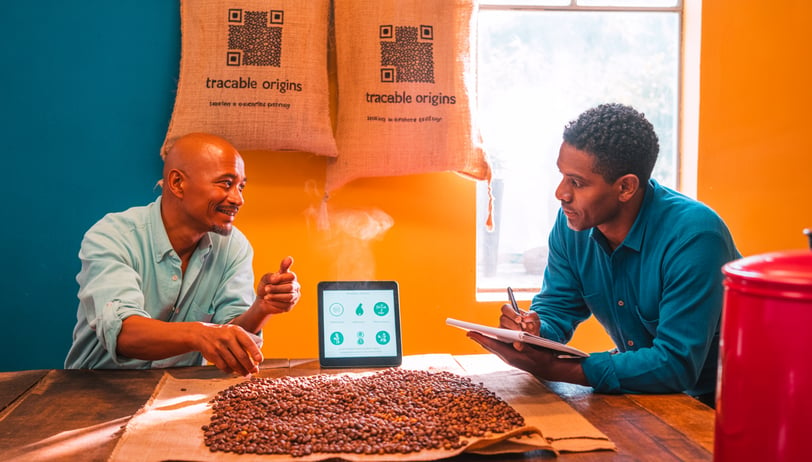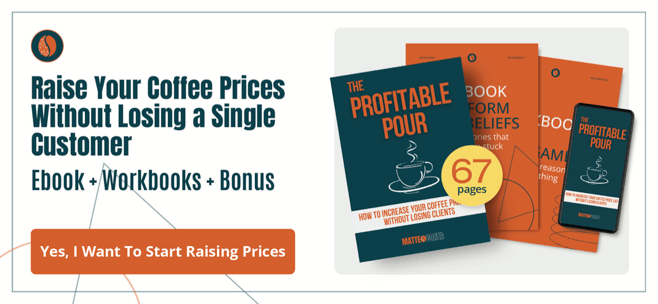Sustainability is no longer a label, it's your license to grow
Consumers want more than promises. They want proof
COFFEE MARKETMARKETING
In the hyper-competitive specialty coffee market of 2025, consumers are demanding something more substantial than colorful certifications and eco-friendly buzzwords. As sustainability becomes the industry standard rather than a differentiator, coffee entrepreneurs face a critical challenge: how to transform environmental commitments from marketing tactics into authentic business assets.


Self-generated image with Ideogram
The Certification Saturation Point
Walk into any specialty coffee shop or browse any online roaster, and you'll encounter an alphabet soup of certifications: Fair Trade, Organic, Rainforest Alliance, Carbon Neutral, Climate Positive, Regenerative Agriculture—the list continues to expand yearly.
This proliferation raises an important question: in a market where everyone claims to be sustainable, what does the term even mean anymore?
The contemporary coffee landscape is experiencing unprecedented cost pressures across the entire supply chain. Climate change has reduced yields in traditional growing regions, labor costs have increased as producers demand more equitable compensation, and logistics expenses continue to climb. To justify the resulting price increases, many businesses have defaulted to environmental certifications as value markers.
However, today's coffee consumer has evolved beyond accepting symbols at face value. The sustainability conversation has matured, and with it, customer expectations.
When Green Promises Turn Brown
The consequences of superficial sustainability are increasingly severe. Research by the Specialty Coffee Association reveals that 68% of consumers now research brand claims before making purchasing decisions, with 73% stating they've abandoned brands after discovering discrepancies between marketing and actual practices.
This phenomenon represents more than just lost sales; it's an erosion of brand equity that can take years to rebuild. In the current climate of heightened consumer awareness, even minor inconsistencies between what you say and what you do can undermine years of reputation building.
The trust deficit is particularly damaging in specialty coffee, where the entire value proposition is built on transparency and connection. When consumers feel misled about sustainability claims, they don't just switch brands—they become active detractors.
The most dangerous trajectory for coffee businesses today isn't being perceived as insufficiently sustainable, but rather as inauthentic. While competitors with genuine practices build meaningful consumer connections, businesses relying on certification badges without substantial commitment find themselves with increased costs and diminished credibility.
The Strategic Path Forward
For evolved coffee entrepreneurs navigating this complex landscape, effective sustainability strategy requires a fundamentally different approach from the certification-centric models of the past decade.
Radical Transparency: Leading coffee businesses are abandoning perfection narratives in favor of transparency about their sustainability journey. Counter Culture Coffee's annual transparency report has become an industry benchmark, acknowledging both achievements and areas where improvement is needed. This authentic approach generates more consumer trust than claims of flawless sustainability.
Values-Aligned Partnerships: Forward-thinking coffee entrepreneurs recognize that certifications are tools, not destinations. The emphasis has shifted to selecting supply chain partners who embody shared values rather than those who merely check certification boxes. These relationships, when properly communicated, create compelling narratives that resonate more deeply with consumers than standardized certifications.
Consumer Education: The sustainability conversation requires context. Detailed producer profiles and educational content that some innovative roasteries are developing represent effective approaches to helping consumers understand the complexity behind sustainability claims. By educating customers about the realities of coffee production, businesses transform passive buyers into informed advocates.
Impact Visualization: Making sustainability tangible through storytelling has become a critical differentiator. Whether documenting farm relationships, showcasing emission-reduction technology, or explaining packaging innovations, the businesses effectively communicating their impact are capturing market share from those relying on certification logos alone.
Today's sustainability paradigm demands clarity rather than perfection. The most successful coffee businesses are building customer loyalty not just through product quality, but through transparent values alignment.
The innovation curve has shifted. It's no longer about which new certification you can add to your packaging. It's about finding creative ways to communicate authentic practices that already exist within your business.
The Economic Reality of Environmental Commitment
The often-overlooked dimension in sustainability discussions is economic viability. Authentic environmental commitment requires financial sustainability as its foundation.
Many coffee entrepreneurs understand the imperative to invest in better environmental practices but hesitate to implement changes due to concerns about passing costs to customers. However, research published in the Journal of Coffee Economics demonstrates that businesses effectively communicating their full value proposition—including sustainability commitments—successfully command premium prices without sacrificing market share.
This principle is extensively documented in my new ebook: "The Profitable Pour," where case studies demonstrate how effective value communication enables price increases while maintaining customer loyalty. The data suggests that genuine sustainability is simultaneously ecological and economic—businesses commanding prices that reflect their actual value gain the financial capacity to invest in environmental and social practices that align with their stated principles.
Moving Beyond Labels
For coffee entrepreneurs ready to evolve their sustainability approach, several actionable steps can initiate the transformation:
Conduct a thorough sustainability audit: Evaluate current practices not just for environmental impact, but for authenticity and communication effectiveness.
Identify the gaps between claims and reality: Document specific areas where sustainability messaging outpaces actual implementation, then prioritize closing these gaps.
Develop a comprehensive communication strategy: Create content that transparently documents both achievements and challenges in your sustainability journey.
Align pricing with actual value: Ensure your pricing structure supports rather than undermines your ability to implement authentic sustainability initiatives.
The specialty coffee industry doesn't need more certification logos—it needs authentic leadership that moves beyond labels to demonstrate meaningful commitment through transparent practices.
As sustainability evolves from marketing advantage to business imperative, coffee entrepreneurs who authentically align their values, actions, and communications will find themselves not just surviving but thriving in this new landscape where sustainability is no longer optional—it's your license to grow.


